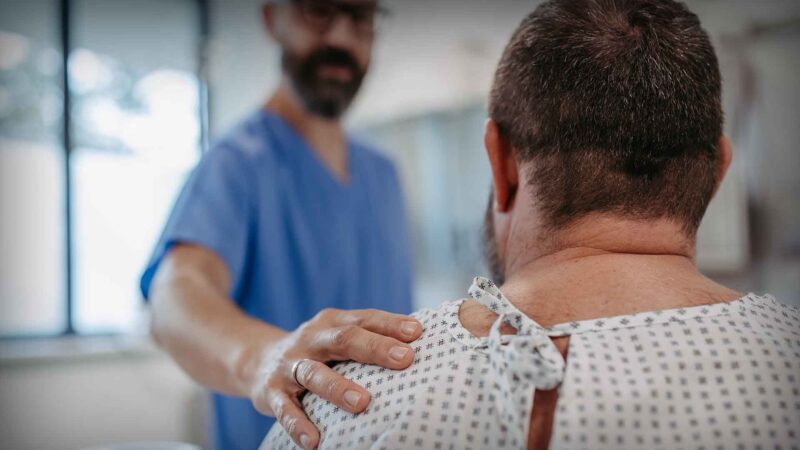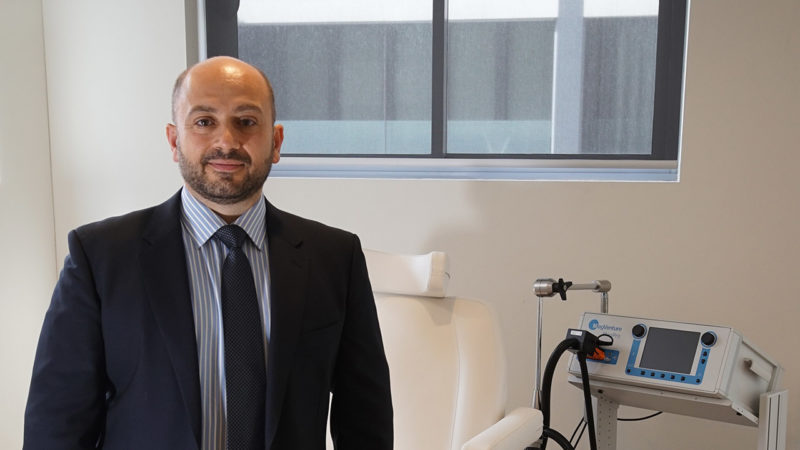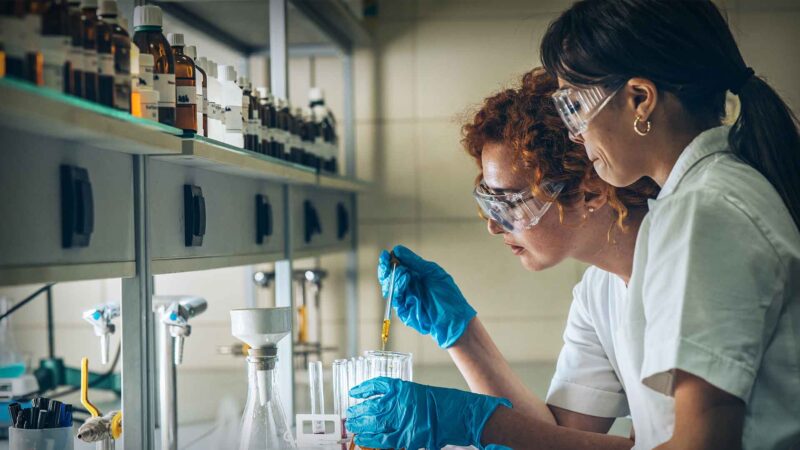FULLY FUNDED TERTIARY QUALIFICATION LAUNCHES TO ADDRESS PERINATAL MENTAL HEALTH CLINICIAN SHORTAGE IN AUSTRALIAN-FIRST Tertiary qualification launched by Gidget Foundation and Federation University.
With Arabella Gibson, CEO
Gidget Foundation Australia
SEGMENT
Filmed in North Sydney | January 2025
Demand for perinatal mental health services is continuing to surge year-on-year. In fact, perinatal mental health organisation, Gidget Foundation Australia (GFA), has supported 30% more clients in FY2024 than in FY2023, up by 214% since FY2021.
Perinatal depression and anxiety (PNDA) impacts 100,000 Australians each year, equating to one in five mums and one in ten dads, with PNDA costing Australia $877 million annually. To address the nationwide shortage of specialist perinatal mental health clinicians, Gidget Foundation Australia has partnered with Federation University to launch the Graduate Diploma in Perinatal Mental Health.
Australian Health Journal met with Arabella Gibson, CEO Gidget Foundation Australia following the announcement to hear about the Gidget mission and the new initiative to address the perinatal mental health clinician shortage.
The new Graduate Diploma in Perinatal Mental Health creates a unique offering in the industry, providing comprehensive ‘on the job’ training, weekly supervision for clinicians, academic modules and a paid placement opportunity as well as ongoing employment through Gidget Foundation Australia’s face-to-face or telehealth services.
The new partnership, create an Australian-first offering of a fully supported tertiary qualification. Gidget Foundation Australia and Federation University have engaged in the unique co-design and co-delivery of the qualification, with both organisations developing and delivering practical and theoretical course content.
Ms Gibson says the Gidget Foundation, with Federation University, is committed to ensuring robust clinical standards are achieved through providing exceptional education for clinicians working in the perinatal space.
“We’ve seen demand for perinatal depression and anxiety support continue to rise, our clinicians supported 30% more clients in FY2024 than in FY2023. It’s essential we have enough qualified clinicians to meet this growing demand to address the critical needs of the individuals impacted.
“Equity, access, and affordability can be a barrier for allied health professionals to further extend their professional knowledge and skills. The Graduate Diploma in Perinatal Mental Health enables health professionals to upskill in perinatal and infant mental health and creates an accessible pathway to enhance knowledge and experience across the sector; whilst benefitting the health professional, clients, and the wider community.”, says Ms Gibson.
The first cohort of the new Graduate Diploma in Perinatal Mental Health will graduate in July 2025 and applications opened in November 2024 for the February 2025 intake.
You Might also like
-
Lower back pain presentations in Emergency Department
Around 70 percent of people will experience lower back pain at some stage of their lives.
A recent study conducted over five years found one in three people suffering from lower back pain presented to hospital via an ambulance.In many cases people will attend an emergency department when they feel they can’t manage their pain or when treatments by community healthcare services have been ineffective or inaccessible due to location or cost. However, 90 per cent of people can get better on their own in a few weeks.
-
AHJ S1E1: Sydney TMS: Transcranial Magnetic Stimulation
TMS (Transcranial Magnetic Stimulation) is a mild form of brain stimulation. Magnetic fields, generated by a coil placed on the head, are used to stimulate a small area of the brain. It is a non-invasive procedure that treats the symptoms of depression through the use of magnetic fields that stimulate nerve cells. The stimulation takes 20-30 minutes and given on an outpatient basis. While receiving stimulation, the patient is fully awake.
It can be use to treat patients who have little success with common treatments e.g., medication, psycho-therapy.
Sydney TMS operates 3 clinics in Australia that provide TMS treatment to patients. Founder Dr Jason Pace spoke with Australian Health Journal
Post Views:
1,761 -
Medical research institutes association responds to draft national research strategy
On 27 August 2025, the Minister for Health, Disability and Ageing announced the release of the draft National Health and Medical Research Strategy (the National Strategy).
Involved in the initial consultation phase, was the Association of Australian Medical Research Institutes (AAMRI), the peak body for medical research institutes across Australia. Member institutes work on a broad spectrum of human health issues such as preventive health, chronic disease, mental health, immunology and Indigenous health. Their research ranges from fundamental biomedical discovery through to clinical research and the translation of research findings.



